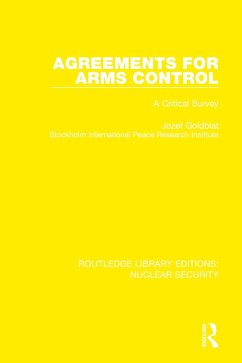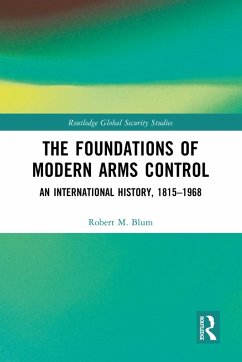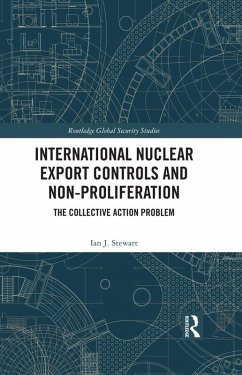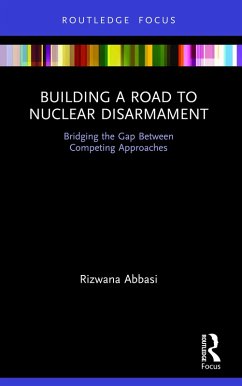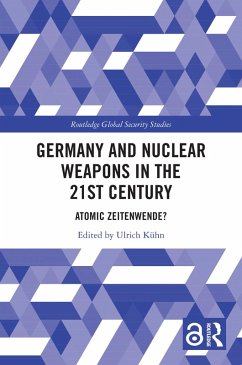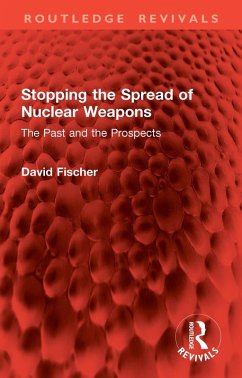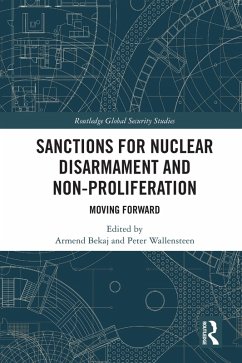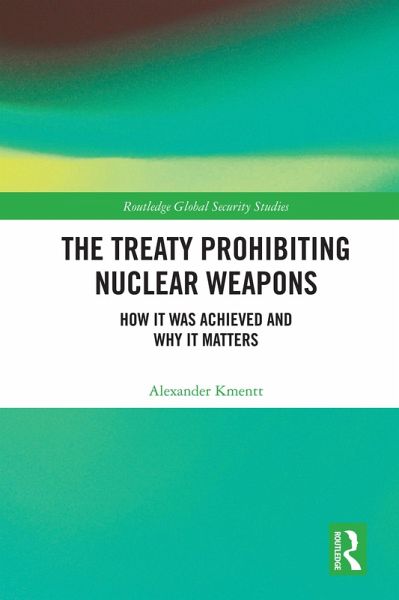
The Treaty Prohibiting Nuclear Weapons (eBook, PDF)
How it was Achieved and Why it Matters
Versandkostenfrei!
Sofort per Download lieferbar
39,95 €
inkl. MwSt.
Weitere Ausgaben:

PAYBACK Punkte
20 °P sammeln!
This book chronicles the genesis of the negotiations that led to the Treaty on the Prohibition of Nuclear Weapons (TPNW), which challenged the established nuclear order.The work provides readers with an authoritative account of the complex evolution of the 'Humanitarian Initiative' (HI) and the negotiation history of the TPNW. It includes a close analysis of internal strategy documents and communications in the author's possession which trace the tactical and political decisions of a small group of state actors. By demonstrating the unacceptable humanitarian consequences and uncontrollable ris...
This book chronicles the genesis of the negotiations that led to the Treaty on the Prohibition of Nuclear Weapons (TPNW), which challenged the established nuclear order.
The work provides readers with an authoritative account of the complex evolution of the 'Humanitarian Initiative' (HI) and the negotiation history of the TPNW. It includes a close analysis of internal strategy documents and communications in the author's possession which trace the tactical and political decisions of a small group of state actors. By demonstrating the unacceptable humanitarian consequences and uncontrollable risks that these weapons pose to everyone's security, the HI convinced many states to ban nuclear weapons and reject the policy of nuclear deterrence as unsustainable and illegitimate. As such, this book is a case-study of multilateral diplomacy and cooperation between state and civil society actors. It also contains a full discussion of both sides of the nuclear argument and assesses the extent to which the HI and the TPNW have moved the dial and present opportunities for transformational change.
This book will be of much interest to students of nuclear disarmament, arms control and non-proliferation, diplomacy, global governance, and International Relations in general.
The work provides readers with an authoritative account of the complex evolution of the 'Humanitarian Initiative' (HI) and the negotiation history of the TPNW. It includes a close analysis of internal strategy documents and communications in the author's possession which trace the tactical and political decisions of a small group of state actors. By demonstrating the unacceptable humanitarian consequences and uncontrollable risks that these weapons pose to everyone's security, the HI convinced many states to ban nuclear weapons and reject the policy of nuclear deterrence as unsustainable and illegitimate. As such, this book is a case-study of multilateral diplomacy and cooperation between state and civil society actors. It also contains a full discussion of both sides of the nuclear argument and assesses the extent to which the HI and the TPNW have moved the dial and present opportunities for transformational change.
This book will be of much interest to students of nuclear disarmament, arms control and non-proliferation, diplomacy, global governance, and International Relations in general.
Dieser Download kann aus rechtlichen Gründen nur mit Rechnungsadresse in A, B, BG, CY, CZ, D, DK, EW, E, FIN, F, GR, HR, H, IRL, I, LT, L, LR, M, NL, PL, P, R, S, SLO, SK ausgeliefert werden.





